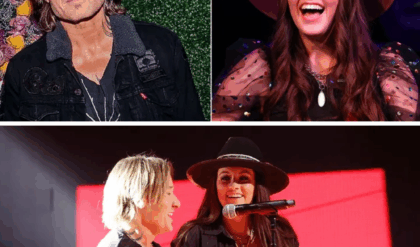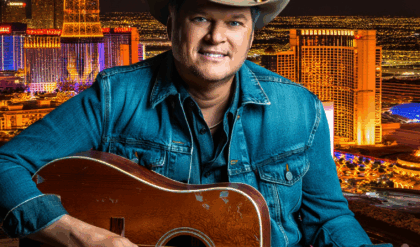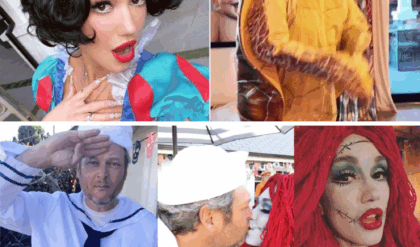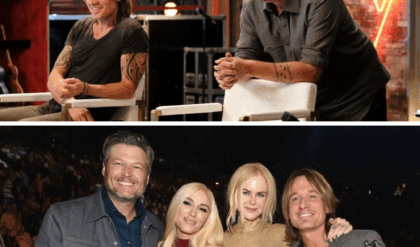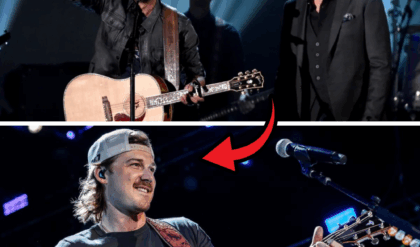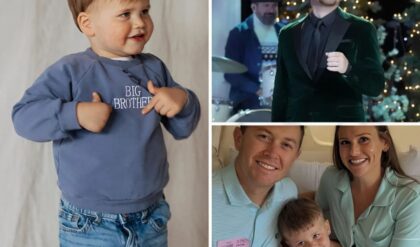When The Brave One hit theaters on September 14, 2007, it arrived with a premise that echoed the gritty vigilante thrillers of the 1970s, drawing inevitable comparisons to Death Wish. Directed by Neil Jordan and produced by Joel Silver, the film promised a dark, psychological journey through a crime-ridden New York City. Yet, despite mixed reviews and a challenging moral narrative, the film’s box office draw—grossing $69 million worldwide against a $70 million budget—was undeniably fueled by one factor above all: Jodie Foster’s electrifying performance as Erica Bain. A two-time Oscar winner, Foster’s ability to embody a woman transformed by trauma into a vigilante avenger captivated audiences, turning a flawed thriller into a must-see cinematic event. Her raw intensity, nuanced vulnerability, and commanding presence made The Brave One a testament to her star power, proving that even a divisive film can thrive with Foster at its helm. 🌟🎬
The Brave One tells the story of Erica Bain, a New York radio host whose idyllic life is shattered when she and her fiancé, David (Naveen Andrews), are brutally attacked in Central Park. David is killed, and Erica, after waking from a three-week coma, is left emotionally and physically scarred. Haunted by fear and disillusioned by the police’s inability to catch the perpetrators, she purchases an illegal handgun and embarks on a vigilante quest, targeting criminals who cross her path. As her actions draw public fascination and the attention of Detective Sean Mercer (Terrence Howard), Erica grapples with her transformation into the very violence she despises. The film’s premise, while familiar, offered Foster a complex role—one that required her to balance fragility, rage, and moral ambiguity. And she delivered in spades. 😢🔫
Foster’s performance was the linchpin of The Brave One’s appeal, drawing audiences who might have otherwise dismissed its derivative plot. Critics, while divided on the film’s execution, were near-unanimous in their praise for her work. Roger Ebert, awarding the film three and a half stars, lauded Foster’s “perfectly modulated” performance, noting her ability to convey unspoken truths in scenes with Howard. The Chicago Sun-Times critic highlighted her chemistry with Howard, describing their interactions as “difficult for actors to play, where they both know more than they’re saying.” Foster’s Golden Globe nomination for Best Actress in a Motion Picture – Drama further underscored her impact, signaling that her portrayal was the film’s beating heart. 🏆🎭
What made Foster’s performance so compelling was her ability to humanize Erica’s descent into vigilantism. From the opening scenes, she portrays Erica as a vibrant, optimistic woman, deeply in love with both her fiancé and her city. Her radio show, Street Walk, is a love letter to New York, filled with poetic musings and ambient city sounds. Foster’s warm, naturalistic delivery in these early moments—her voice soft yet confident—establishes Erica as relatable and grounded. When tragedy strikes, Foster’s transformation is visceral. Her face, once radiant, becomes a mask of grief; her eyes, haunted and hollow, convey a woman unraveling. In a pivotal scene where Erica buys the gun, Foster’s trembling hands and hesitant speech capture the character’s fear and desperation, making her decision feel both inevitable and tragic. 😔💔
As Erica evolves into a vigilante, Foster avoids caricature, grounding even the most violent moments in emotional truth. In one gripping sequence, she confronts a convenience store shooter, her voice quivering as she demands, “Give me the gun.” When she shoots him, Foster’s expression—a mix of shock, relief, and horror—conveys Erica’s internal conflict. This isn’t the cartoonish bravado of a Death Wish knockoff; it’s a woman pushed beyond her limits, wrestling with the cost of her actions. Foster’s physicality also shifts subtly throughout the film, as noted by Filmotomy: her posture grows more rigid, her movements deliberate, reflecting Erica’s growing gravitas as a “sidewalk warrior.” Her voice, too, evolves—from the melodic cadence of her radio broadcasts to a ragged, almost guttural tone in later scenes, mirroring her psychological decay. 🎙️🔪
Foster’s chemistry with Terrence Howard, who plays the empathetic yet determined Detective Mercer, was another draw for audiences. Their scenes, often laced with subtext, are among the film’s strongest. In a café confrontation, where Erica all but confesses her crimes, Foster and Howard play off each other with quiet intensity, their coded dialogue crackling with tension. “Foster and Howard are quite adept with the subtext, sending and receiving messages on multiple planes,” Filmotomy observed, crediting their interplay for elevating the film above typical vengeance thrillers. Audiences on platforms like Reddit echoed this, with one user in 2025 calling their dynamic “absolutely beautiful,” praising how it showcased “deeper levels to each of their characters.” This chemistry gave The Brave One an emotional anchor, drawing viewers into Erica’s moral quandary and making her journey resonate. 🤝🔍
Despite Foster’s brilliance, The Brave One wasn’t without flaws, which makes her role in its success even more remarkable. Critics, giving it a 43% on Rotten Tomatoes, criticized its “problematic and unconvincing eye-for-an-eye moral” and uneven pacing. Some, like The Guardian, called it a “thinking woman’s Death Wish,” but others found its portrayal of New York as a crime-ridden hellscape outdated, more akin to the 1970s than the post-9/11 era. The film’s moral ambiguity—celebrating Erica’s vigilantism while questioning its cost—left some viewers unsettled. “It’s too unpleasantly stern to be exploitation, and too bloodthirsty to be drama,” critic Tim Brayton wrote, noting the script’s failure to reconcile its contradictions. Yet, Foster’s performance transcended these issues, turning a messy narrative into a compelling character study. Her ability to make Erica both sympathetic and unsettling kept audiences engaged, even when the plot faltered. 📉🎥
The film’s box office performance, while not a blockbuster, was respectable, largely due to Foster’s star power. Opening at No. 1 with $13.4 million domestically, The Brave One held strong in a competitive fall season, ultimately earning $36.7 million in the U.S. and $32.3 million internationally. Foster’s name above the title was a major draw, as evidenced by audience reactions. Amazon reviews praised her “superlative acting,” with one customer calling the film “a stunning triumph of the human spirit” because of her portrayal. Another wrote, “This movie for me is so real… Jodie Foster did an AMAZING job,” emphasizing how her performance captured the visceral reality of trauma. These sentiments reflect why audiences flocked to theaters: Foster made Erica’s pain and rage palpable, transforming a familiar story into something deeply personal. 💸👏
Foster’s own reflections on the role added depth to the film’s appeal. A vocal gun control advocate, she admitted to Reuters that playing a gun-wielding vigilante was “horrifyingly satisfying,” a paradox that mirrored Erica’s journey. “Holding and shooting a gun… gives you the power to say, ‘I live, you die,’” she said, acknowledging the seductive pull of vengeance she had to channel. This candor resonated with audiences, who saw her grapple with the same moral questions as Erica. Foster’s reputation as a “smart, sensitive actress audiences love to root for,” as Entertainment Weekly put it, further amplified her draw. Her ability to portray “both beautifully fragile and undeniably fierce” made her the perfect fit for a character teetering between victim and predator. 🗣️🔫
The supporting cast, including Naveen Andrews, Mary Steenburgen, and a young Zoë Kravitz, added texture, but Foster was the undeniable force. Her performance elevated The Brave One beyond its Death Wish roots, offering a female perspective on vengeance that felt fresh, even if the script didn’t fully deliver. As People en Español noted, “Foster’s superlative acting put The Brave One at must-see status,” despite its flaws. Fans on X echoed this in 2025, with one user calling it “a refreshing and intriguing movie” thanks to Foster’s commanding presence.
In the end, The Brave One’s success—both at the box office and as a cultural talking point—rests on Jodie Foster’s shoulders. She took a flawed script and an overfamiliar premise and infused it with raw emotion, moral complexity, and undeniable charisma. Whether she was a heartbroken radio host, a terrified survivor, or a cold-blooded avenger, Foster made Erica Bain unforgettable. For audiences, she wasn’t just the star—she was the reason to watch, the pulse of a film that dared to ask hard questions about justice and survival. The Brave One may not be a perfect thriller, but with Foster at its core, it’s a powerful reminder of why she remains one of Hollywood’s greatest. 🌟🎬
